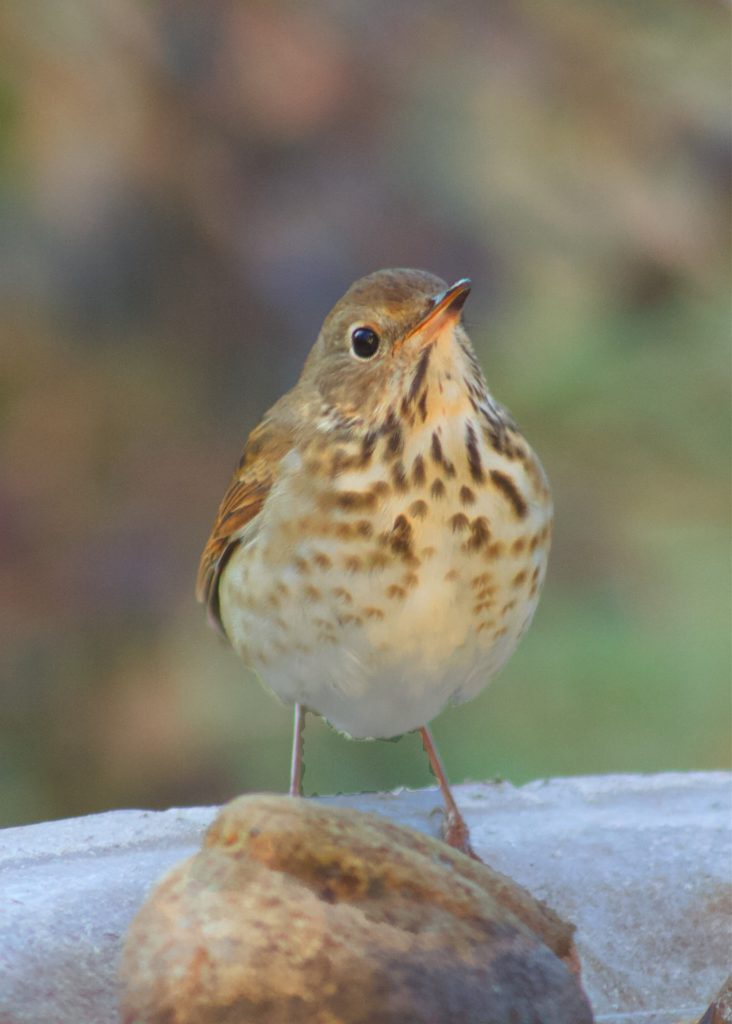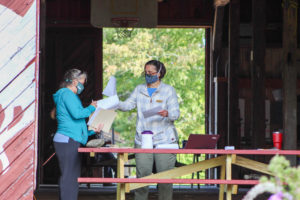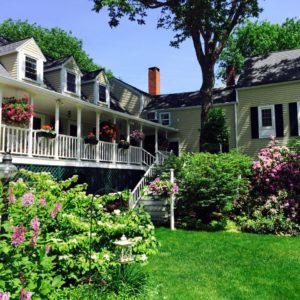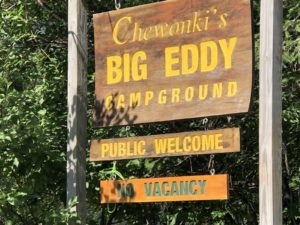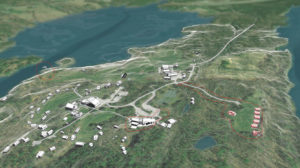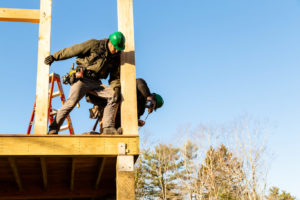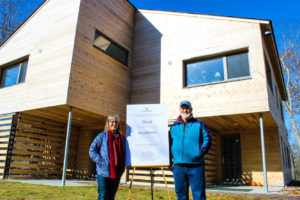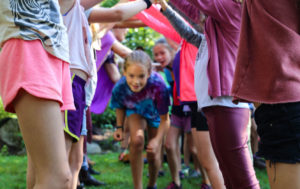*Cue Trumpet Fanfare*
It is our great pleasure to unveil the names of our new Eastside campus buildings. A huge thank you to the donors who supported this project. Each was named after an element of the natural world that campers may encounter in one of our programs.
Whippoorwill
Eastern Whip-poor-will
Antrostomus vociferus
A medium-sized crepuscular (active during twilight) bird named onomatopoetically for its song
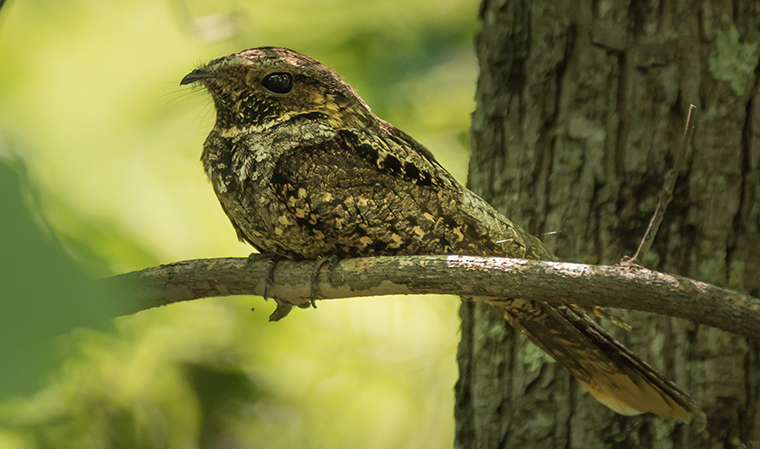
Cardinal
Northern Cardinal
Cardinalis cardinalis
Named for its distinctive red crest, this bird feeds primarily on seeds using its large bill
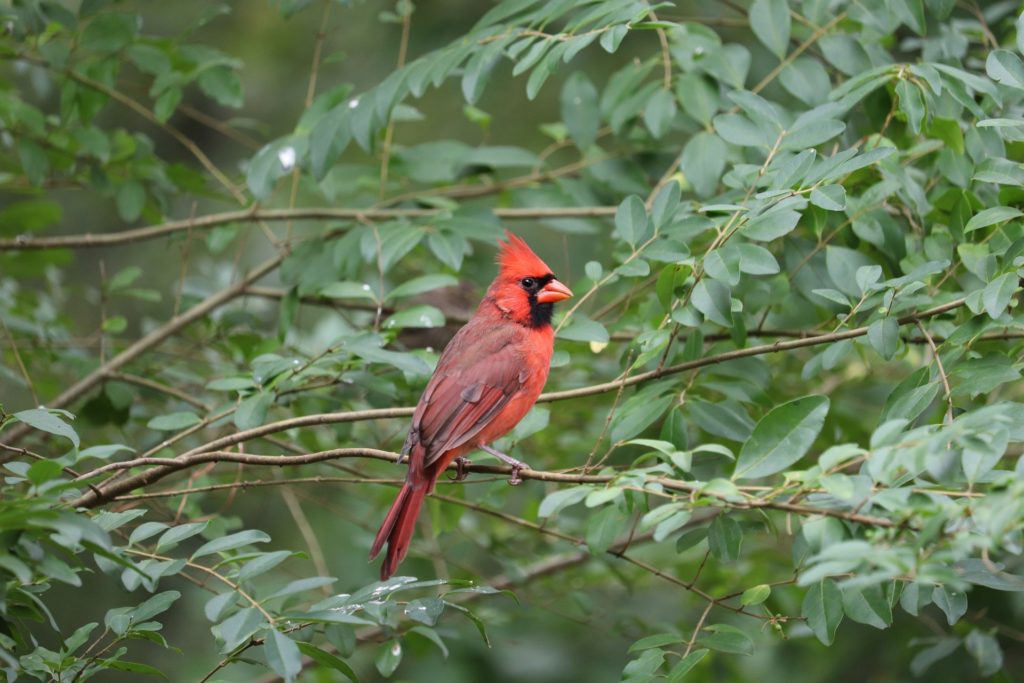
Tamarack
Larix laricina
Also known as eastern larch, tamarack is a deciduous conifer that grows in cooler climates. Its name is derived from the Algonquian akemantak, meaning “wood used for snowshoes.”
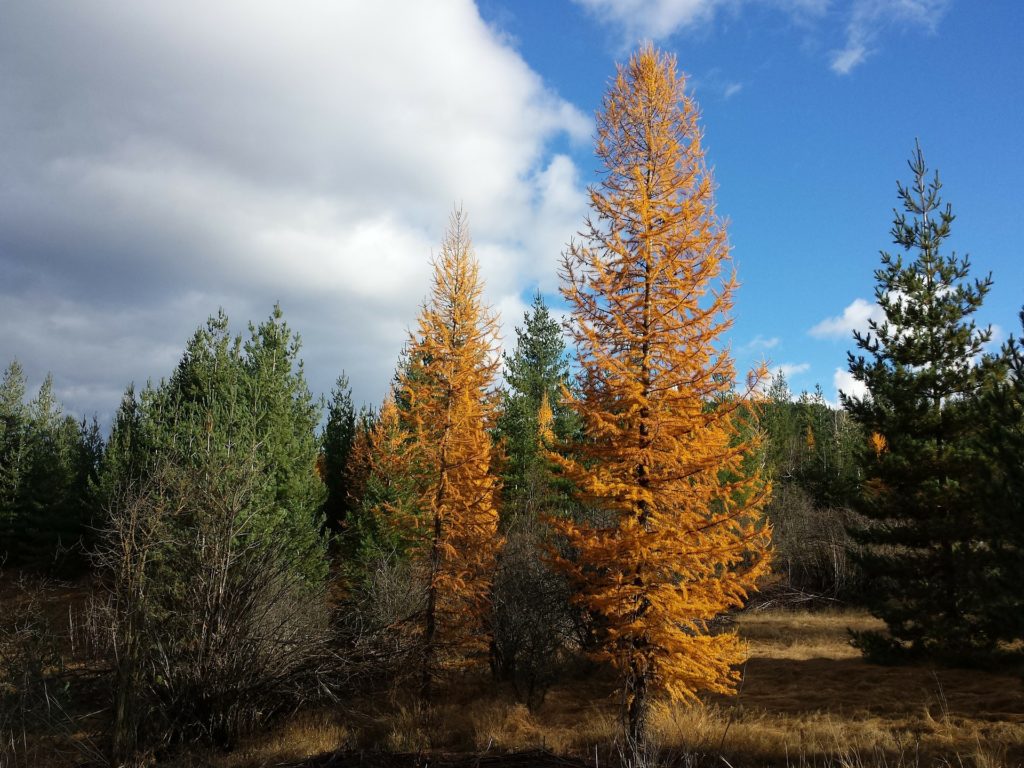
Fiddlehead
Ostrich Fern
Matteuccia struthiopteris
The coiled part of a young fern, resembling the curled ornamentation on the end of a stringed instrument. Fiddleheads have been harvested by the Maliseet, Mi’kmaq, and Penobscot peoples for centuries.
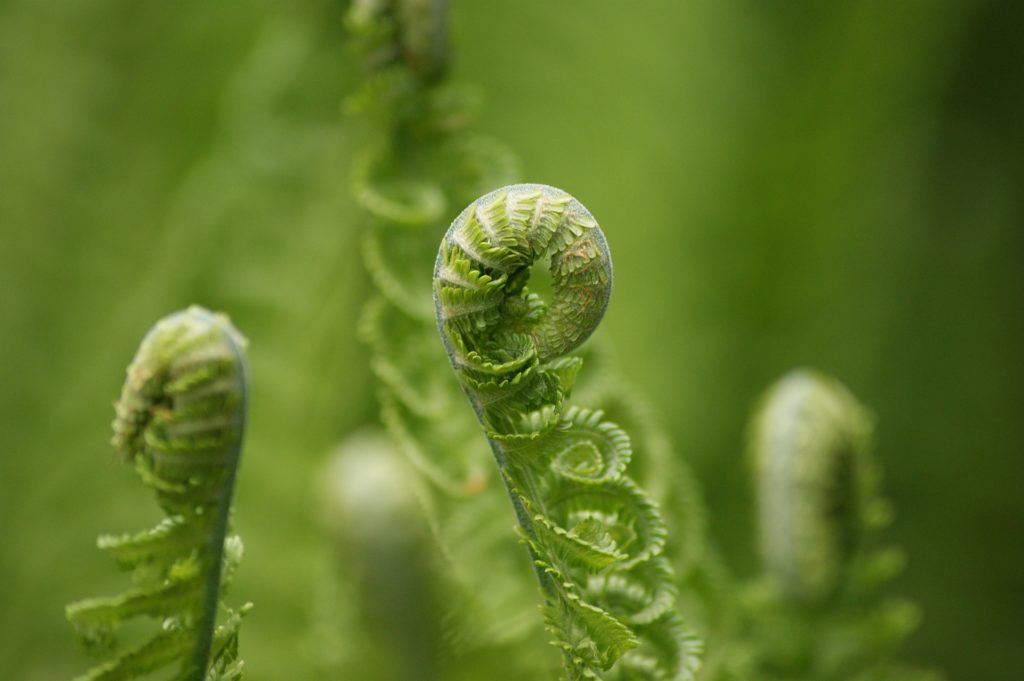
Meadowlark
Eastern Meadowlark
Sturnella magna
An insectivorous grassland bird known for its colorful plumage and whistling song
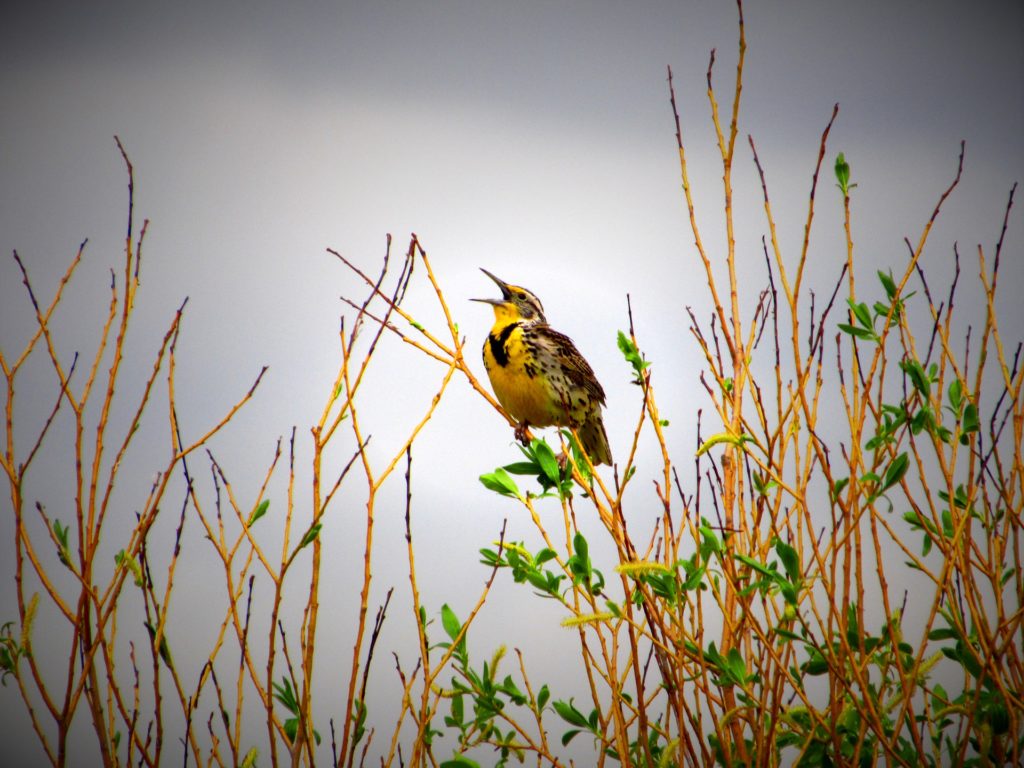
Starflower
Northern Starflower
Trientalis borealis
A woodland perennial that blooms between May and June, it’s whorling petals form a star-like shape
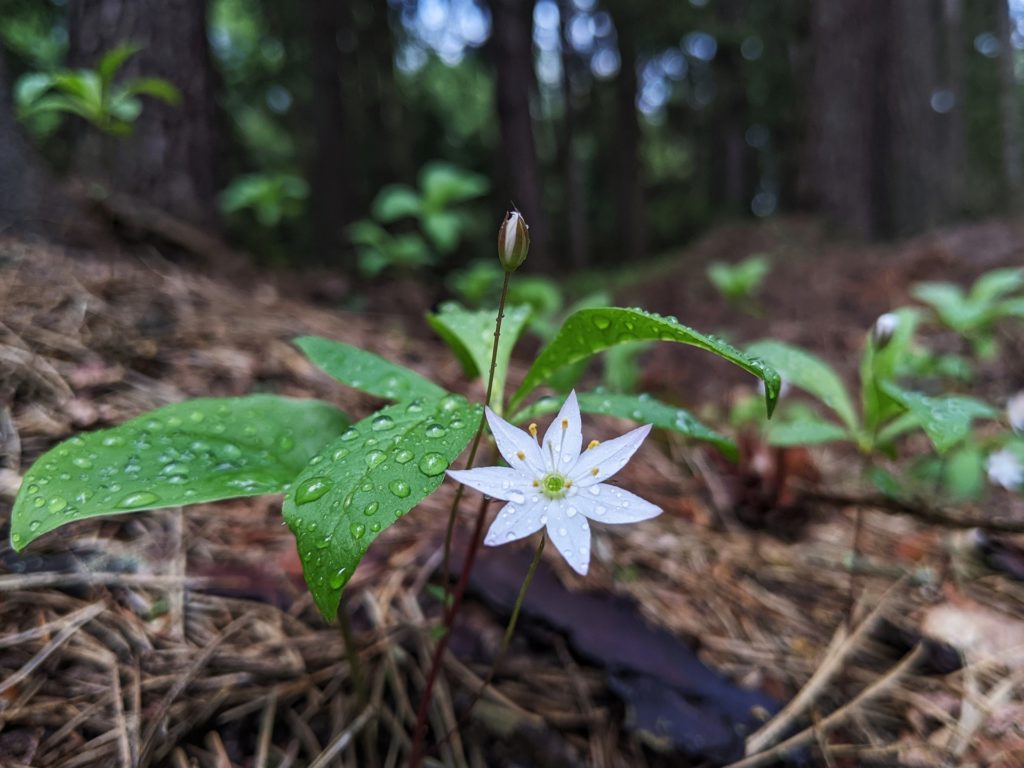
Tadpole
An aquatic, larval-stage amphibian, usually a frog or toad.
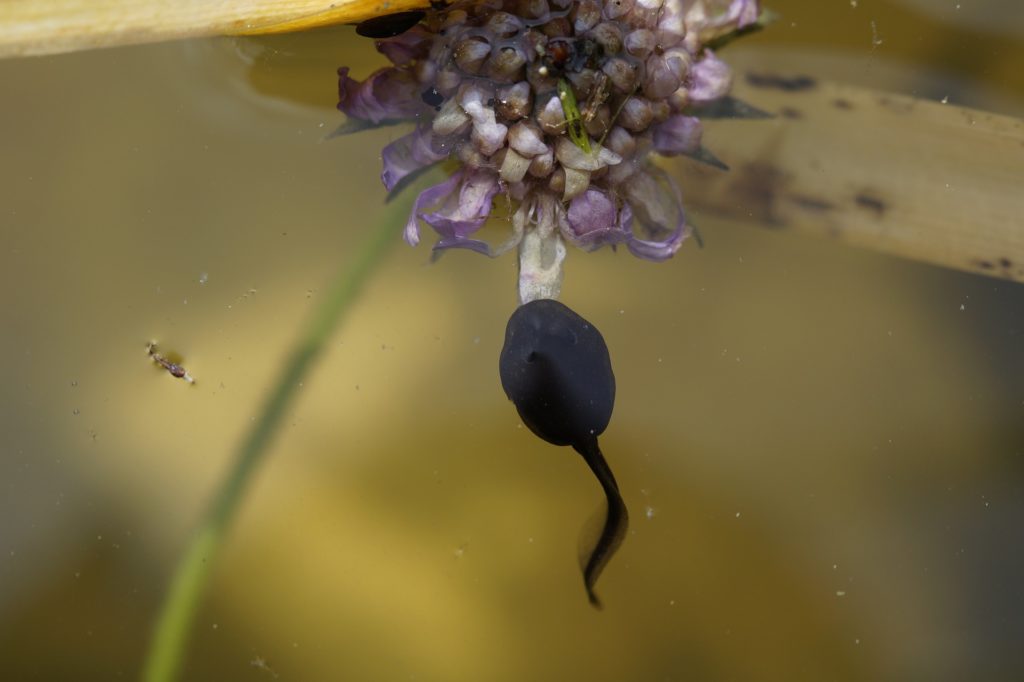
Bluebird
Eastern Bluebird
Sialia sialis
A small, migratory thrush found in open woodlands, farmlands, and orchards, with a distinctive bright blue coloring
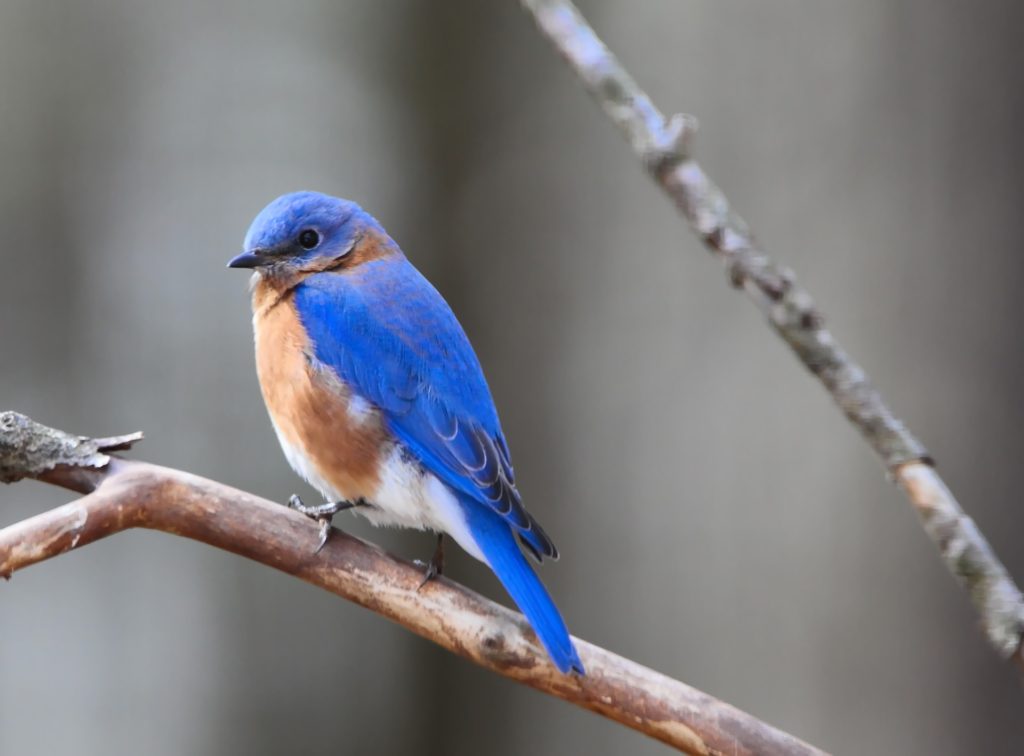
Veery
Catharus fuscescens
A small member of the thrush family, the veery’s birdsong is breezy and flute-like. It often perches low to the ground, calling a descending vee-er, which gives the bird its name.
